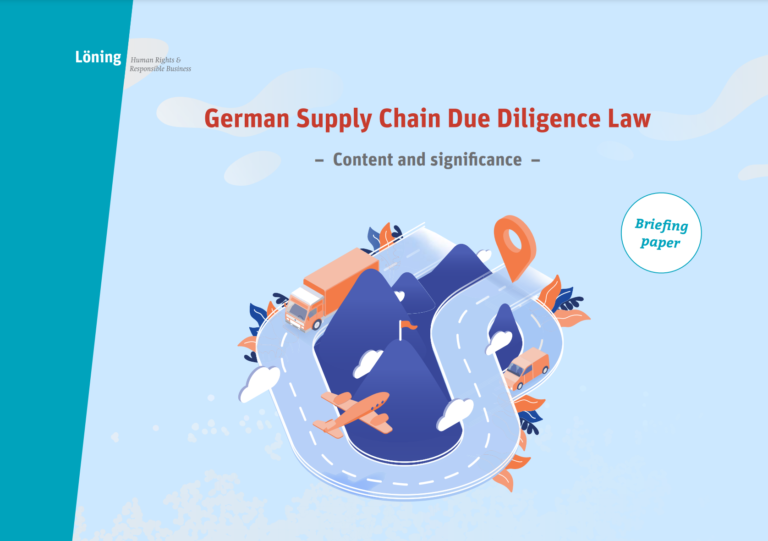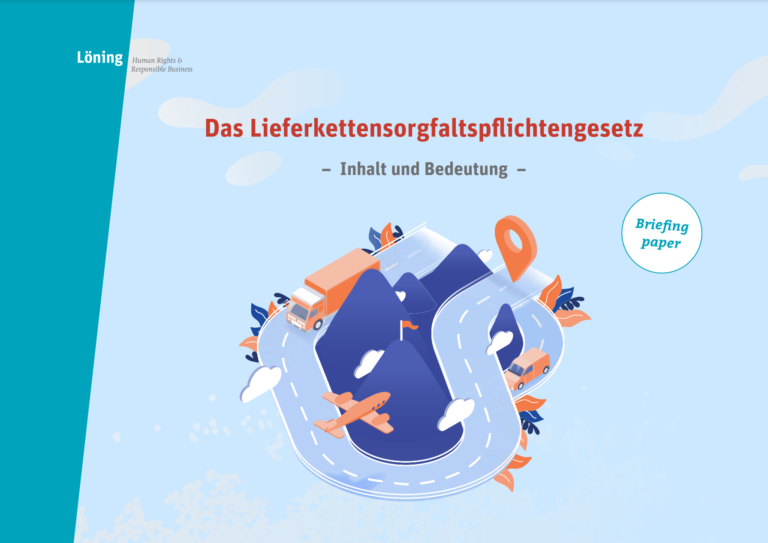International trade and business operations by German and European companies represent an opportunity to create jobs and generate prosperity along global supply chains. On the downside, these activities can also have substantial negative effects on the people and the environment along those same supply chains. In addition to the duty of the state to respect, protect and fulfil human rights, companies also have the responsibility to respect human rights.
In order to ensure the practical implementation of this responsibility as well as to create clear rules and the same conditions for all companies in Germany, the German Federal Cabinet adopted the Supply Chain Due Diligence Law.
The Law was passed by the German Parliament (Bundestag) and Federal Council (Bundesrat) in June and is planned to come into force in January 2023.
This briefing paper is provided in Germany (see below.)


